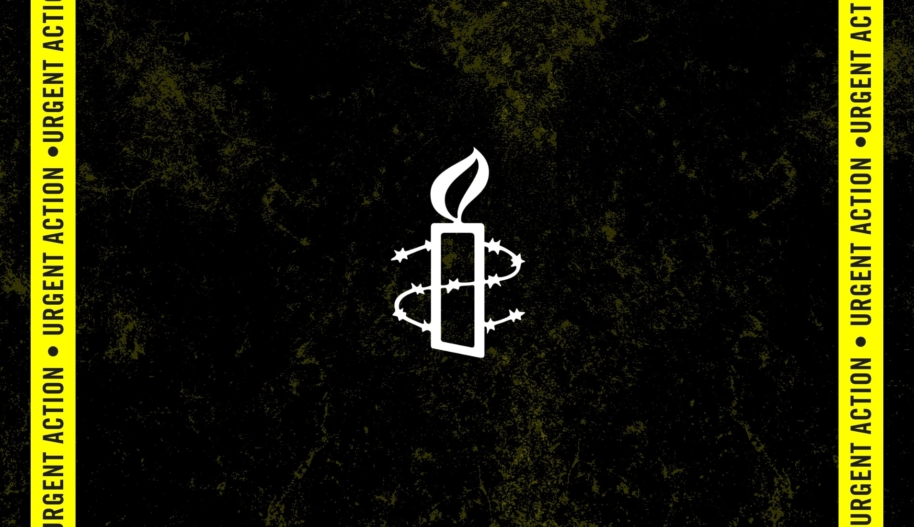On August 4, the family of Nguyen Van Chuong was asked to report within three days to the People’s Court of Hai Phong City in Viet Nam to make arrangements to receive his remains after his execution.
Nguyen Van Chuong was convicted in unfair proceedings mainly on the basis of a “confession” that he has said was extracted through torture during police interrogation. Two witnesses who stated that he was 40km away from the murder scene said that the police physically abused and threatened them to withdraw their testimonies.
Nguyen Van Chuong has been on death row since 2008. His family were not informed of the date for the set execution.
Here’s what you can do:
Write to the President of Viet Nam urging him to:
- Immediately halt any plans to carry out the execution of Nguyễn Văn Chưởng and grant him a fair review of his case;
- Initiate a prompt, independent and impartial investigation into the allegations that he was subjected to torture or other cruel, degrading or inhuman treatment.
Write to:
Võ Văn Thưởng
President of Việt Nam
No. 2, Hùng Vương, Ba Đình District
Hà Nội, Việt Nam
Emails: geneva@mofa.gov.vn ; info@vietnam-un.org
Salutation: Your Excellency:
And copy:
Mr. Chi Thanh TRAN
Counsellor & Chargé d’affaires, a.i.
Embassy of the Socialist Republic of Vietnam
55 Mackay Street
Ottawa, ON K1M 2B2
Tel: (613) 236-0772
Email: info@vietnamembassy.ca
Background
Nguyen Van Chuong, a 40-year-old labourer from North Viet Nam, was convicted of the robbery and murder of a policeman in July 2007, alongside two others, and sentenced to death. On August 4, his family were asked to make arrangements for his remains, leading to concerns that his execution could be imminent. Family members were able to visit him in prison on August 14, when Nguyen Van Chuong confirmed to them that he was informed about the decision to carry out his execution. However, he was not given a date for it.
Nguyen denies the charges and in letters to his family wrote that he was subjected to torture and other ill-treatment while in police custody to make him “confess” to the murder. He stated that he was stripped naked, hung, and beaten during police interrogation. The authorities have reportedly denied his claims.
Additionally, state media reports have indicated that several people from his village were willing to testify that they saw him at the village at the time of the murder, 40 kilometers away from the crime scene. However, the Hai Phong City Court relied primarily on the police’s reports to convict him. Two witnesses from his village had also alleged that they were physically abused by the Hai Phong City police and threatened.
Unfair trials
In 2011, the Procurator General of the Supreme People’s Procuracy requested that the Supreme People’s Court quash the appellate criminal judgment and commute his death sentence. However, in December 2011, the Supreme People’s Court rejected the appeal.
In a recent interview, Le Van Hoa, a lawyer who in 2013 worked at the Central Internal Affairs Committee of the Communist Party and reviewed the case of Nguyen Van Chuong, pointed to many inconsistencies and procedural violations in the investigation, trial and appeal phases.
These include significant inconsistencies in the analysis of the forensic evidence from the murder scene and body of the victim; the sword and knives attributed by the police to Nguyen Van Chuong and his co-defendants not matching the marks in the victim body; many contradictions in witness statements as given at trial; the lack of investigation, as requested by the Chief Justice by the police of evidence of Nguyen Van Chuong’s alibi, including coordinates of his phone records that could have confirmed he was not present when the murder took place.
Death penalty in Viet Nam
Data on the use of the death penalty remains classified in Viet Nam as a state secret. Death sentences continue to be imposed for murder, drug related offences and economic crimes, such as embezzlement. Reports of executions by media are rare, but Amnesty International believes that scores of executions continue to be carried out yearly.
Torture and other ill-treatment are absolutely prohibited under international law but remain common practices by Viet Nam’s authorities. Viet Nam has ratified the Convention Against Torture and is a State Party to the International Convention on Civil and Political Rights (ICCPR).
As a state party to these treaties, Viet Nam has undertaken to take all measures to ensure that no one is subjected to torture or other cruel, inhuman or degrading treatment or punishment and that “any statement which is established to have been made as a result of torture shall not be invoked as evidence in any proceedings, except against a person accused of torture as evidence that the statement was made”.
UN safeguards guaranteeing protection of the rights of those facing the death penalty establish that this punishment can only be imposed based upon clear and convincing evidence leaving no room for an alternative explanation of the facts.
Amnesty International opposes the death penalty in all cases without exception, regardless of the nature or circumstances of the crime; guilt, innocence or other characteristics of the individual; or the method used by the state to carry out the execution.
The organization opposes the death penalty as it violates the right to life and is the ultimate cruel, inhuman and degrading punishment. As of today, 112 countries have abolished the death penalty for all crimes and more than two-thirds in total are abolitionist in law or practice.













